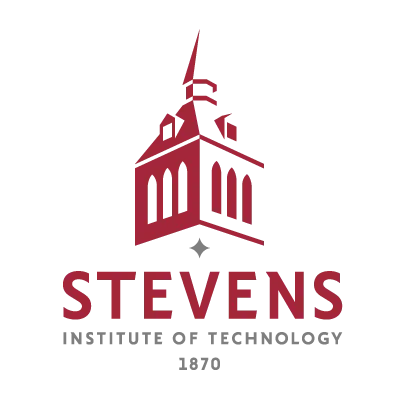Data Science vs. Computer Science: Understanding the Connection

Data Science vs. Computer Science: Lines between technological disciplines have grown increasingly blurry in a world where complex computer systems control everything from telecommunication networks to IoT-enabled teapots. The ever-expanding reach of these systems has spawned abundant specialized occupational opportunities in technology, which is fantastic news for people already passionate about one or more subfields of tech. On the other hand, those who haven’t yet found a niche may feel overwhelmed by the breadth of options for education and employment in technology.
Consider the Master of Science in Computer Science (MSCS) vs the M.Eng. in Applied Data Science. Both degrees are associated with high salaries. Both give ambitious students the qualifications they need to take full advantage of booming tech employment.
The question isn't whether an MSCS is better than an M.Eng. in Applied Data Science, or vice versa, but rather which degree pathway is the right one for you. The applications of computer science and data science are very different, and that can guide your choice.
It’s not unusual for MSCS graduates to work in data science, as ‘data scientist’ is a pathway role.
There are numerous well-defined career paths open to Master of Science in Computer Science graduates. “One of the greatest things about a computer science degree is that it allows you to work in whatever industry you desire,” Sam Gavis-Hughson, CEO and founder of Byte by Byte, told U.S. News & World Report. There are jobs for computer science professionals in every industry, from finance and manufacturing to healthcare and retail. MSCS graduates work in positions such as:
- Chief technology officer (CTO)
- Computer programmer
- Database architect
- Director of engineering
- Information security manager
- Network architect
- Product manager
- Software architect
- Software developer
- Software engineer
- Solutions architect
- Systems engineer
- Vice president of information technology
- Web developer
M.Eng. in Applied Data Science graduates have fewer paths open to them, but still more than many people realize. It's harder to quantify precisely how many more because employer naming conventions drive data science job titles. One company's data scientist might be another company's information engineer or advanced analyst. Data science degree graduates have titles such as:
- Business analyst
- Chief information officer
- Data architect
- Data engineer
- Data visualization developer
- Decision scientist
- Director of data science
- Domain expert analyst
- Machine learning scientist
- Statistician
There are also intersecting career paths in computer science and data science. It’s not unusual for MSCS graduates to work in data science, as ‘data scientist’ is one of these dual pathway roles. Machine learning jobs also tend to toe the line between computer science and data science. Like data scientists, machine learning engineers develop software tools suited to specific forms of data manipulation or data analysis use-cases.
JOB AVAILABILITY IN DATA SCIENCE VS. COMPUTER SCIENCE
Job outlook and earning potential can help guide your choices, though predicting your prospects is easier if you are leaning toward M.Eng. in Applied Data Science vs Master of Science in Computer Science (MSCS). Different data science job titles don't necessarily correlate with varying demand or pay scales - unless you look at salaries for manager-level or executive-level roles, which trend higher. The average data scientist earns about $116,000 with a master's degree, which is very close to the typical salaries data engineer, data visualization developer and decision scientist report on sites such as Indeed. Job growth across data science roles will likely be strong over the next decade, which means an M.Eng. in Applied Data Science is a wise investment.
Meanwhile, calculating the current and future demand for computer science professionals is much more difficult because the field encompasses hundreds of job titles across numerous subdisciplines such as:
- Artificial intelligence
- Cloud engineering
- Computer architecture
- Cybersecurity
- Database design and administration
- Distributed computing
- Engineering management
- Information science
- Programming skills and theory
- Networking
- Security engineering
- Software development
- Software engineering
- Systems administration
The computer science job outlook released annually by the U.S. Bureau of Labor Statistics (BLS) and other sources won’t tell you much about your career prospects unless your goal is to become a computer or information research scientist. The BLS predicts that employers will create 5,000 new jobs for computer scientists in the coming decade, 8,000 jobs for network architects and nearly 50,000 for information systems managers. Demand for software developers will skyrocket, and employment across computer-focused careers - a category that includes data science - will grow much faster than average.
MSCS VS. M.Eng. in Applied Data Science – THE DIFFERENCES
There is some overlap between computer science and data science master’s programs, but you can distinguish between them by looking at admission prerequisites, curriculum and learning outcomes.
At Stevens, MSCS and M.Eng. in Applied Data Science applicants have to meet the same basic admissions requirements, including a bachelor's degree and an undergraduate GPA of 3.0 or higher. Students enroll in each program with different skillsets, however. Computer science master's degree candidates usually enter the online MSCS program with skills and knowledge related to:
- Computer organization
- Data structures
- Java
- Programming
They tend to be programmers, engineers, and developers who want to transition into computer system analysis, database management, and specialty areas of computer science such as robotics or game development. Some have their eyes on senior-level roles or executive management positions. Others might plan to pursue a doctorate upon finishing their master’s degree.
Once you’ve chosen your path, Stevens makes it easier to earn your degree.
The online M.Eng. in Applied Data Science program, on the other hand, attracts students with experience in advanced mathematics, computer science and data analytics. They want to launch careers in data science - a field in which the master's is the entry-level degree - or in specialty areas related to machine learning and AI. M.Eng. in Applied Data Science candidates typically enter the program with skills and knowledge related to:
- Linear algebra
- Multivariable calculus
- Probability theory
- Programming languages such as Python, R or MATLAB
- Statistics
Students in both online master's programs study database management systems, distributed systems and cloud computing. Beyond that, the coursework in the StevensOnline MSCS and M.Eng. in Applied Data Science programs are quite different.
Online courses in the core computer science master’s curriculum include:
- Advanced Programming in the UNIX Environment
- Algorithms
- Computer Organization & Programming
- Data Structures
- Java Programming
- Operating Systems
- Mobile Systems & Applications
- Web Programming
The data science master’s curriculum includes online courses such as:
- Advanced Optimization Methods
- Analysis Review
- Applied Machine Learning
- Deep Learning
- Dynamic Programming & Reinforcement Learning
- Linear Algebra
- Natural Language Processing
- Probability
- Statistical Methods
- Time Series Analysis
Learning outcomes in these two masters programs of Data Science vs. Computer Science are also very different. Computer science degree candidates graduate able to:
- Develop realistic programs in various programming languages
- Predict the complexity of algorithms, including algorithms for trees and graphs and as part of dynamic programming
- Provide mathematical proofs of the properties of algorithms
Although M.Eng. in Applied Data Science candidates study programming and algorithm design, their primary skills revolve around:
- Formulating real-world problems in data science tools and practices
- Collecting and cleaning the data needed to solve problems
- Applying advanced analytics techniques to find answers
- Evaluating answers for errors and risks
The differences between these programs fade when you’re looking at tuition. The cost per credit hour ($1,697) is the same for both programs, and students in each are eligible for the same financial aid, including scholarships of up to 25 percent of total tuition, federal student loans and private loans.
DETERMINING WHERE YOU BELONG – Data Science vs. Computer Science
By now, you probably have some idea of where your personal and professional ambitions lie. A computer science degree online may be the better choice if you are passionately interested in programming and pushing the limits of what software and hardware can do. If, on the other hand, you find statistics, heuristics, data mining and machine learning incredibly compelling, you may be happiest studying and working in the evolving world of data science. Fortunately, there’s no wrong choice. Both academic and career pathways are promising, with stronger demand, higher salaries and better job security than many other fields.
EARNING A MASTER’S DEGREE AT STEVENS
Once you've compared data science vs. computer science and chosen your path, Stevens makes it easier to earn your degree. The Schaefer School of Engineering & Science offers both the MSCS and the M.Eng. in Applied Data Science entirely online. Whether you choose computer science or data science, you'll get the qualifications required to advance without taking a leave of absence from your current job - or even taking time off work. A master's degree from Stevens can also help land one of the few, highly coveted remote computer science or data science jobs that often go to candidates with advanced degrees from schools with a reputation for excellence.
Stevens ranks #8 in the nation on U.S. News & World Report's lineup of the best graduate-level online computer information technology degree programs. The MSCS and M.Eng. in Applied Data Science faculty includes world-class computer science and data science experts who conduct cutting-edge, future-focused research in artificial intelligence, cybersecurity, Big Data and information science. The curricula in the MSCS and M.Eng. in Applied Data Science programs follow industry demand. And the online learning experience the Schaefer School of Engineering & Science offers is supportive and designed to foster career success.
If you are ready to transition from business analytics to data science or from coder to computer scientist, now is the time to apply.

